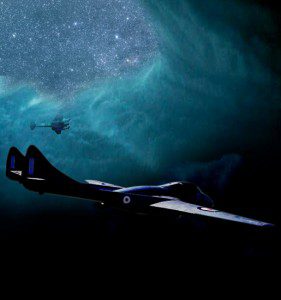
They are the most soothing and at the same time perhaps the most mysterious symbols of Christmas. They appear in carols, in the Bible, in Christmas cards and just about every nativity scene one could imagine. They are seldom quoted, but always acknowledged as trusted and worthy guides to a safe and protected place.
“And there were in the same country,” it says in the Book of Luke, “shepherds abiding in the field, keeping watch over their flock by night…”
Of course, in the biblical reference, the shepherds are visited by angels, told of important events far away, and inspired by a distant star to travel and seek out the place where Joseph and Mary attend their newborn child, Jesus, in a manger. It is they, the shepherds – again according to the Bible – who become most responsible for retelling the story of their journey and discovery, “glorifying and praising God for all the things that they had heard and seen.”
Equally significant, to my family at least, and just as much an annual symbol of Christmas, is a shepherd created in another piece of literature, in a completely different era, but somehow filled with as much mystery and respect as the biblical shepherds. In the winter of 1974, Frederick Forsyth, renowned for his full-length novels “The Day of the Jackal,” “The Odessa File,” “The Dogs of War” and many other thrillers, faced a dilemma. His wife kept poking around in his closets looking for the Christmas present she figured he’d hidden. When he humoured her by saying he’d forgotten to get her a gift, she challenged him.
“Oh well, write me a ghost story as a gift,” Carrie (his wife) said.
Forsyth told Open Road Media that he immediately set about concocting a plot line for a short story, a novella. It involved a young Cold War-era pilot attempting to fly his Royal Air Force Vampire jet fighter from northern Germany home to Suffolk, England, late in the night on Christmas Eve in 1957. En route, his Vampire suffers “a catastrophic electrical failure, which knocks out all his radio gear and his compass, which is bad enough. But then he discovers the whole landscape beneath him is covered in thick fog. And because he can’t find his way down he thinks he’s going to die.”
Enter: The Shepherd. During the Second World War, as Commonwealth aircrews grew more expert in night-time operations over Nazi-occupied Europe, Bomber Command turned to an elite group of pilots, mostly flying Mosquito fighter-bombers, to set flares around industrial targets, direct streams of Allied bombers to and from their targets in total darkness, and on their return trips guide crippled bombers home safely to their British bases.
These skilled and death-defying Mosquito pilots were known as “shepherds.” In Forsyth’s novella, just as the young RAF pilot has given up all hope of finding his way home through the night fog, a Mosquito appears at his wingtip and guides him in silence to a safe landing in England. What happened next, Forsyth explained, was the twist in the tale. And it’s chilling.
“In one sitting, Christmas Eve afternoon (in 1974), I just wrote it – about 10,000 words,” Forsyth said in the Open Road Media documentary. “And I gave (the manuscript) to my wife the next morning.”
I remember The Shepherd not as a short story in a book, so much as I remember it as a memorable piece of radio. In December of 1979, my young family and I settled into our first Christmas in Edmonton. We barely knew anybody, but our best friend – at least as far as my wife Jayne and I were concerned that December – was CBC Radio, and in particular the evening current affairs program “As It Happens.” As it happened that Christmas the program inaugurated the once-a-year-broadcast-reading of The Shepherd by then senior staff announcer Alan Maitland. It became an annual tradition on CBC Radio and in the Barris household; each Christmas Eve we listened to Maitland’s classic telling of how that Vampire pilot was saved by a ghost.
If you’re reading this Barris Beat on the afternoon of Thursday, Dec. 24, Christmas Eve, you still have time to catch this historic broadcast. At 6:30 p.m. on CBC Radio One (if you’ve never listened to CBC Radio One before, it’s 99.1 FM) you’ll hear the evening edition of “As It Happens” begin. In the Christmas Eve edition of the show, you can hear that annual broadcast of Forsyth’s “The Shepherd” read by Alan Maitland.
If you’ve never heard it, set aside the 40 minutes from 6:30 to 7:10 that evening. Pour a glass of your favourite holiday cheer. Gather and hush the family by the radio. Turn the lights down low. And listen to this riveting, spooky Christmas tale from its first words: “While waiting for the control tower to clear me for takeoff…” to its final ones: “Good night, sir. And Happy Christmas.”
You’ll feel as enchanted and safe as any flock in the care of any shepherd at Christmas.
Hello Ted,
I can relate to the Christmas Shepherds too!
Great choice!
Elmer
PS I would like to talk to you about an idea.
A great Christmas tale that I can really appreciate, and some future reading, as I haven’t read that. Thanks
Merry Christmas Ted and Jayne, and family Geoff